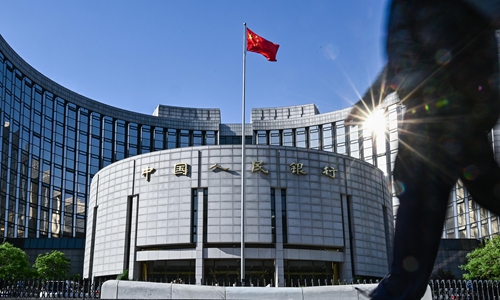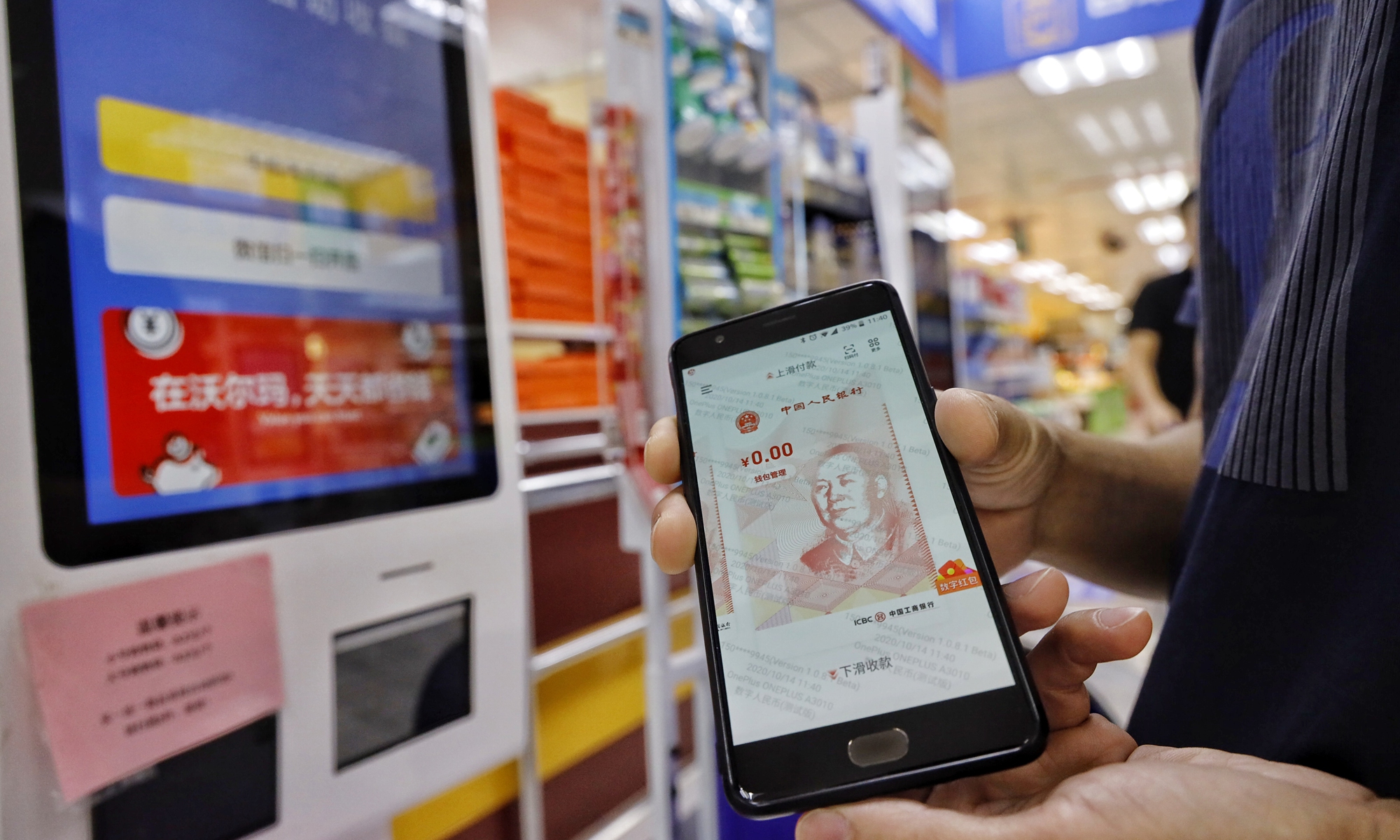New law will legalize digital yuan
By Yin Yeping Source: Global Times Published: 2020/10/25 19:43:14
Move will boost global payment system, reduce financial risks

China's central bank Photo:cnsphoto
Seventeen years after the second amendment of the Law of the People's Republic of China on the People's Bank of China was approved, public comments are being taken on a new draft version that was proposed on Friday.
Analysts said that the new draft, if passed, will help reduce financial risks by giving the central bank a larger role in the use of a digital currency. It will also address money laundering, reduce costs and win China more financial status in the world.
The draft law addresses for the first time the central bank's determination to reduce systemic financial risks and legalize the digital yuan. Experts said this measure will have great importance for the development of China's financial system.
The fourth Plenary Session of the 19th Communist Party of China (CPC) Central Committee proposed building a modern central banking system. On this basis, the CPC Central Committee and the State Council put forward new requirements for the PBC to perform its duties.
The measure would enable the PBC to coordinate supervision over important financial institutions, financial holding companies and important financial infrastructure, as well as to increase penalties for violations.
"The new law is an attempt to guard against systemic financial risks amid the two-way opening of China's market and the huge scale of financial products innovation," Dong Dengxin, director of the Finance and Securities Institute at the Wuhan University of Science and Technology, told the Global Times on Sunday.
The draft stipulates that the yuan includes the physical and digital forms, providing the legal basis for the issuance of the digital currency. The draft also specifies that no unit or individual is allowed to produce or sell digital tokens, and those who do will face punishment.
The issuance of the currency and corresponding support systems will play a part in risk management and control, experts said.
"The digital yuan will play a vital part in financial supervision. It can prevent forgery and laundering, thanks to its traceability. It will also cut the costs of issuing, recycling and transporting cash," Dong said.
Guo Tianyong, head of the Chinese banking industry research center at the Central University of Finance and Economics in Beijing, told the Global Times that usage of digital yuan through online payments can achieve "point-to-point" transactions. Payments won't have to go through WeChat or Alipay but instead through another system backed by the PBC, and help reduce risks, said Guo.
Mu Changchun, head of the PBC research unit on digital currencies, said at the 2020 Bund Summit in Shanghai on Sunday that the issuance of the digital yuan won't be implemented by administrative order, but should be carried out in a market-oriented manner.
The PBC will keep issuing banknotes as long as people have a need to use them, added Mu.
Mu noted that there will not be a competition between the PBC's digital yuan and WeChat or Alipay. The two payment platforms are the financial infrastructure and the country's wallet, while the digital yuan is the payment tool and contents of the wallet.
Several cities are testing the digital yuan, with many residents quickly embracing it as a secure unit backed by the PBC. One such attempt was made recently in Shenzhen, South China's Guangdong Province, where the local government and the PBC gave away 50,000 digital "red packets" each containing 200 yuan ($30) on October 12.

Residents who received "red packets" of digital RMB use the money in stores in Shenzhen, Guangdong Province, on Wednesday. The city launched a pilot program to distribute 10m yuan ($1.49m) in the form of digital currency to residents on Monday.Photo:Li Hao/GT
Creating a legal framework for the digital yuan is progressing, but experts said that it will take another two to three years for a nationwide issuance.
Sun Guofeng, director of the monetary policy department of the central bank, said at a recent news briefing that the PBC will steadily push forward research and development of the digital yuan, with no timetable for its official launch.
There is no timetable because there will likely be problems or risks that can't be foreseen, and pilot programs are a way to find them, said Guo.
The digital currency will play a big role in the yuan's internationalization, giving China a greater role in the global financial sector.
"Since we can offer a different approach from SWIFT's global fund transfer and payment platform controlled by the US, it is likely to greatly enhance China's voice in the global financial sector," said Guo.
Posted in: ECONOMY,BIZ FOCUS